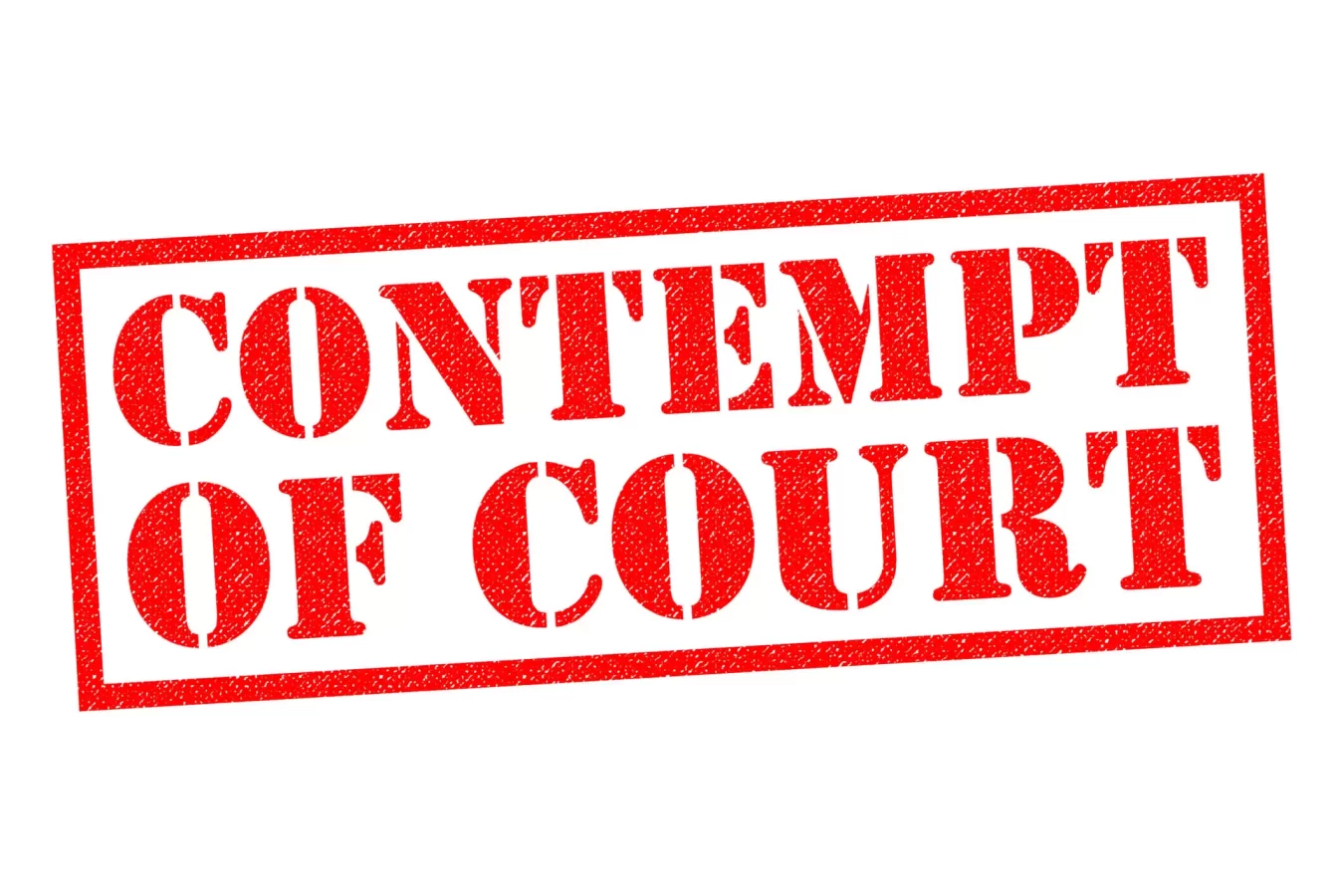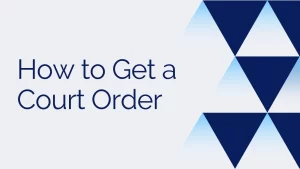what does contempt of court mean
What Is Contempt of Court? Understanding the Basics and Implications
In the realm of law and order, the concept of “contempt of court” holds a significant position. This legal term refers to an act of disrespect, disobedience, or interference with a court’s orderly process. This article aims to provide an insightful understanding of contempt of court, its various classifications, key elements, examples, and the potential implications it holds. Let’s delve into this crucial aspect of the legal system.
At its core, contempt of court refers to actions that undermine the respect and authority of a court, hindering its proceedings or impeding the administration of justice. These actions encompass a wide range of behaviors, including disrupting court sessions, intimidating witnesses, disobeying court orders, and even public displays of disrespect.
- Contempt of court involves disrespect, disobedience, or interference with a court’s proceedings.
- It can be broadly categorized into criminal and civil contempt, as well as direct and indirect contempt.
- Key elements of contempt include misbehavior in the court’s presence, misbehavior of court officers, and disobedience to court orders.
Understanding Contempt of Court
Misbehavior in Court’s Presence
One form of contempt involves misbehavior within the court’s premises, obstructing the administration of justice. This could include disruptions, contemptuous remarks, or actions that undermine the decorum of the proceedings.
Misbehavior of Court Officers
Contempt also extends to court officers who engage in misconduct during their official duties. Their actions could hinder the legal process and compromise the integrity of the court.
Disobedience to Court Orders
Contempt of court can arise when individuals defy or resist court orders, writs, or commands. Disobedience to these lawful directives can result in legal consequences.
Types of Contempt of Court
There are generally two types of contempt of court:
- Civil Contempt: This occurs when an individual fails to comply with a court order, often involving child custody, divorce settlements, or payment of debts. Civil contempt is typically coercive and intended to compel compliance with the court’s order.
- Criminal Contempt: Criminal contempt involves actions that directly undermine the court’s authority or obstruct justice. This includes acts like disrespecting a judge, refusing to testify, or disrupting court proceedings.
what is contempt of court punishment
Penalties for Contempt of Court
Contempt of court is a serious offense, and the penalties vary depending on the jurisdiction and the type of contempt. Here are some common consequences:
Civil Contempt Penalties
- Fines: Individuals may be required to pay fines until they comply with the court’s order.
- Jail Time: In extreme cases, a person may be imprisoned until they meet the court’s requirements.
- Compensatory Damages: Victims of civil contempt may be awarded compensation for damages caused by the contemnor’s actions.
Criminal Contempt Penalties
- Fines: Fines can be imposed, often as a punishment for disruptive behavior.
- Imprisonment: Offenders may face jail time for actions that undermine the court’s authority or obstruct justice.
- Probation: In some cases, probation may be offered as an alternative to imprisonment, but it usually comes with strict conditions
what happens when you are in contempt of court
You can face contempt of court charges for various actions, including:
Disobeying a Court Order
Violating either civil or criminal court orders can trigger contempt charges. Examples include not following child custody terms, failing to pay fines, or not completing court-mandated counseling.
Disrupting Court Proceedings
Behaving disruptively in court by being loud, disrespectful, using profanity, or even falling asleep can lead to contempt. More serious disruption like violence or attempting to flee will also be punished.
Failing to Appear in Court
If you fail to show up for a scheduled court date after being served a summons or subpoena, the judge may issue a bench warrant and charge you with contempt of court.
Inappropriate Courtroom Behavior
Things like showing up to court drunk or under the influence of drugs, wearing inappropriate clothing, or bringing prohibited devices can show contempt and disrupt proceedings.
Violating a Gag Order
If punished with a court gag order and speak publicly about the case, you could face contempt charges for violating the order.
Consequences of Being in Contempt
The penalties for contempt may include:
Fines
Fines are common punishment for contempt, especially civil contempt when trying to compel compliance. Fines can range from $50 to several thousand dollars.
Imprisonment
Judges may impose jail time for contempt charges, more commonly for criminal contempt. Sentences can range from a few days to over a year in severe cases.
Probation or Community Service
Instead of jail, contempt sentences sometimes involve probation or required community service hours under close court supervision.
Legal Fees and Costs
You will likely have to pay all legal costs and fees related to contempt charges. These can add up to thousands of dollars quickly.
Classification of Contempt
Criminal vs. Civil Contempt
Criminal contempt is punitive, involving fines or imprisonment, and is separate from the ongoing case. Civil contempt, on the other hand, aims to ensure future compliance with court orders and can be avoided through adherence.
Direct vs. Indirect Contempt
Direct contempt occurs within the court’s presence, while indirect contempt transpires outside the courtroom. The nature of the contemptuous act dictates the classification.
Judicial Discretion in Contempt Cases
Judges hold significant discretion in determining contemptuous behavior and its consequences. Acts of defiance, interference, or disrespect from any party involved in legal proceedings can be considered contempt of court.
Contempt of Court in the Age of Social Media
The digital age has introduced new challenges to the legal system, particularly concerning juror impartiality and conduct.
Juror Impartiality and Online Challenges
Jurors are instructed to avoid seeking information about cases outside of evidence presented in court. Online interactions and communications about cases before a verdict can compromise the fairness of trials.
Juror Misconduct in the Digital Era
Instances of jurors using the internet during trials have led to contempt of court charges. Online exchanges with defendants or researching cases online can jeopardize trial integrity.
Real-World Example: The Martin A. Armstrong Case
The case of Martin A. Armstrong exemplifies civil contempt of court. Accused of a financial scheme, Armstrong’s failure to comply with court orders resulted in imprisonment and fines.
Examples of Contempt of Court
Contempt can manifest in various ways, such as:
- Disrupting court proceedings
- Disobeying court orders
- Publicly commenting on cases against court instructions
Challenging a Contempt of Court Accusation
Contempt orders can be challenged through higher court appeals. Successful appeals require evidence of unfairness or error and must be filed within a specified timeframe.
Contempt of Court vs. Freedom of Speech
Contempt of court is sometimes perceived as conflicting with the right to freedom of speech. However, it’s essential to understand that freedom of speech does not extend to actions that disrupt court proceedings or threaten the administration of justice. Courts must maintain order and protect their integrity.
International Perspective on Contempt
Different countries have varying laws and regulations regarding contempt of court. While some nations view it as a grave offense, others have a more lenient approach. Understanding the legal framework in your jurisdiction is crucial to avoid unintended consequences.
Defending Against Contempt Charges
There are a few potential defenses if faced with contempt allegations:
Demonstrating Inability to Comply with Order
For civil contempt, proving unambiguously that complying was impossible despite good faith efforts may defeat charges. However, the bar is high for this claim.
Showing Order Was Unclear or Impossible
You may avoid conviction by demonstrating that the court’s order was unclear or literally impossible to follow. There must be real ambiguity though.
Apologizing and Taking Corrective Action
For mild first-time offenses, earnest apologies and steps showing intent to comply can sometimes mitigate charges. But contempt is still punished seriously.
Purging Contempt and Regaining Freedom
To have contempt charges cleared (“purged”) and regain freedoms, you usually must:
Fulfilling Original Court Order
Fully carrying out the court order you failed to follow originally is typically the first obligation. Strict compliance is expected.
Serving Imposed Sentence
If sentenced to jail, probation or community service for contempt, fully finishing the sentence as ordered is also required in most cases.
Paying Fines and Fees
All fines and court-imposed fees must also be paid in full. Courts may setup payment plans if amounts are substantial.
By understanding contempt of court and the actions that constitute it, you can avoid these very serious charges. However, if faced with allegations, promptly defend yourself and comply with orders. Contempt should always be taken gravely, as penalties can disrupt lives and freedom.
Conclusion
Contempt of court underscores the importance of maintaining respect for the judicial process. Understanding its classifications, implications, and potential consequences is crucial for all participants in legal proceedings.
FAQs
- Can criticism of a court decision be considered contempt of court? While individuals have the right to express their opinions about court decisions, it must be done respectfully and within the bounds of the law. Disparaging remarks that undermine the court’s authority may be deemed contemptuous.
- How can one avoid contempt of court charges? To avoid contempt charges, it’s essential to comply with court orders, respect courtroom decorum, and refrain from any disruptive or disrespectful behavior during legal proceedings.
- Is contempt of court a criminal record? Contempt of court can result in a criminal record, especially in cases of criminal contempt where the actions directly obstruct justice.
- Can attorneys be held in contempt of court? Yes, attorneys can be held in contempt if they engage in disrespectful or disruptive behavior during legal proceedings or fail to follow court orders.
- What is the international perspective on contempt of court? International views on contempt of court vary. It is essential to be aware of the specific laws and regulations in your jurisdiction, as well as any potential consequences for contemptuous behavior.
- What is the most common penalty for contempt? The most common penalty is a fine, particularly for civil contempt situations. However, jail time, probation, community service, and paying legal fees are also frequent punishments.
- Can I be handcuffed in court for contempt? Yes, judges may order in-court handcuffing or detention for disruptive, threatening, or fleeing contempt behavior. More serious outbursts can result in charges beyond just basic contempt.
- Do I have any rights if charged with contempt? Yes, you still retain basic legal rights around due process, representation, and trial. For criminal contempt involving jail time, you may request a jury trial in some jurisdictions.
- Can contempt charges be expunged? It depends on the specifics, but some first-time, non-willful contempt rulings can be expunged later, usually through an additional formal legal process. Multiple, willful, or serious charges tend to remain permanently.
- What’s the average jail time for contempt? Average jail sentences for contempt are typically between 1-3 months in most areas. But penalties vary widely based on contexts, history, and local customs. Judges have broad discretion on contempt punishments.







